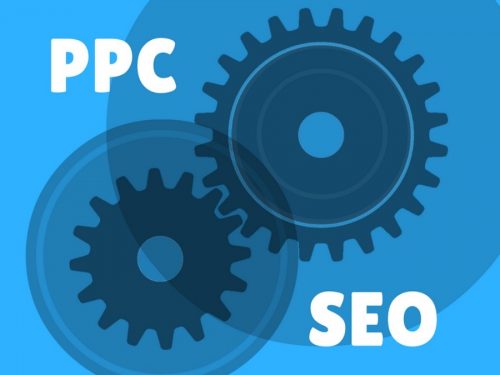
When marketers like you set out to establish blogs, they want them to be successful.
After all, what’s the point of putting your time, energy, and effort into a blog if nobody wants to read it or share it with their friends?
Here’s the hard truth, though. Even though nobody wants to be a bad blogger, many people accidentally take steps that make them into mediocre bloggers.
If you’re one of the many hardworking writers who wants to author a blog you’re proud to share with the world, knowing what these mistakes are and how you can avoid them is critical.
10 Common Practices of Awful Bloggers
Whether you’re a new blogger just getting started, or an experienced writer wondering why people aren’t reading your material, these 10 common mistakes will sink your blogging career like a lead balloon. Read through them and think about how many apply to you:
1. Telling Stories
Storytelling and telling stories are two different things. While storytelling is the critical practice (frequently used by marketers) of making a brand engaging, relatable and compelling, telling stories is something terrible, no-good, very bad bloggers do.
Here’s the difference: brand storytelling, as defined by the Huffington Post, “is the most effective way to connect with your audiences.” It includes three key components: the reason your company exists, what motivates you to go to work, and how your internal processes function to bring your goals to life.
Companies like TOMs and Patagonia are both great examples of brands that do storytelling very well.
Telling stories, however, is a different pursuit. Unless you’re Scheherazade (who used her storytelling powers to keep herself alive in the palace of a ruthless king for 1,001 nights), or a highly trained storyteller, simply relaying stories on your blog will bore your readers and cost you traffic.
While there’s something to be said for learning how to weave the components of storytelling into your blog, simply using it as a digital platform to recount what happened to you last Tuesday, without also tying that story into a moral or learning point, won’t work.
2. Throwing Traditional Wisdom by the Wayside
Think you’re such a marketing genius that you don’t need to listen to any of the advice and input of the marketing geniuses before you?
You might be, but, then again, you might not.
Today, there are more than two million blog posts published every day, and it’s impossible to stand out without being good. While some of that comes down to writing skill, much of it comes down to a willingness to learn the blogging system and abide by its rules.
You see, blogging isn’t just the act of writing a post and publishing it. Instead, it’s also SEO, social media marketing, promotion and customer relationship management.
If you don’t have a solid understanding of how these things work (and how they all work together), you’re going to sink like a lead balloon.
And guess what’s down there? All the terrible bloggers you didn’t want to be.
3. Not Writing Enough
Bad bloggers always have a reason they can’t just focus on writing. Maybe they’re trying to “build their social following first,” or maybe they “don’t have any good ideas yet.” Regardless of what the case may be, trying to become a successful blogger without blogging is a lot like trying to build a house without any nails or wood.
It just won’t work.
Instead, the best bloggers start and end with blogging. They understand that, if they write it, and keep writing it, people will come. They also understand that their content is their brand and that prioritizing it is essential.
4. Writing Micro-Posts
The only blogger I know of who has made a brand off micro-posts is Seth Godin. While he proves that there is a one-in-a-million chance of becoming a major Web celebrity by writing 250-word blurbs, it’s not something you should be striving for.
Today, most of the great minds on the Web are focusing on long-form content. In fact, Jon Morrow recently wrote a SmartBlogger post in which he said, “In my opinion, no beginning blogger should be publishing anything under 1,000 words. And really, 2,000 words should be your goal.”
If you’re writing short content as a beginning blogger, you’re probably not giving your readers what they want or need. Short posts make it tough to offer value or be relevant. They also don’t do much in the way of establishing you as an authority in your industry. What’s more, Google prefers long-form content, and writing more of it can help you get noticed faster.
5. Stating the Obvious
Today’s blog readers are smart. Generally, they can notice obvious trends and draw obvious conclusions on their own, which means that they don’t need you to do it for them. If you’re writing posts that don’t do anything but state the obvious, you’re going to lose readers.
If you want to be a standout blogger, you need to dig deeper.
Unless your blog offers content people can’t find anywhere else, they’re not going to come to stay. With this in mind, make it your personal mission to only write comprehensive, in-depth material. Your readers will thank you and you’ll earn a place as a sought-after blogger in no time.
6. Getting too Hung up on Originality
In the world of blogging, there’s a fine line between being original and being unrealistic. While you certainly want to develop your own voice, approach and point of view, there’s nothing new under the sun. With this in mind, use the ideas, perspectives and outlooks of other bloggers to form your own approach.
While you don’t want to copy anyone, you also can’t expect to be the only person who thinks or writes like you do. Getting excessively hung up on being original will just make it impossible to publish anything.
What’s more, bloggers who incorporate the visions and information of other professionals into their work may provide more value for their readers.
7. Never Asking For What You Need
The world’s most successful bloggers aren’t afraid to ask for what they need. Unfortunately, many beginning bloggers are. Over time, these new bloggers fail again and again to ask for shares, opinions, input, or links simply because they’re afraid to ask. And, over time, this fear of being rejected makes it impossible for the blogger to succeed.
If you want to be a great blogger, you can’t expect to exist as an island. Part of getting noticed online is creating a two-way dialogue with your readers and peers. If you’re not asking for things like social shares, topic suggestions and links, you’ll never get them. What’s more, you’ll never make a name for yourself.
8. Writing Sporadically
If you want to be a successful blogger, you need to write on a consistent basis. Regardless of whether this is twice a week or four times a month, sitting down and showing up is 90 percent of what makes a successful writer.
If you can’t do this, you’re bound to fail.
Unfortunately, too many bloggers treat writing like something they do in their leisure time, even as they’re trying to become a consistent online presence or make their living from blogging.
To avoid this, schedule your writing time like it’s an appointment or a meeting. Once it’s in the books, don’t let anything get in its way. Holding yourself accountable is the only way to stand out online and build your writing skills.
9. Forgetting About SEO
Blogging and SEO go together like cookies and milk: you can’t have one without the other. For your blog to make it into the search results of your audience, it must be optimized properly. While beginning bloggers often forget to think about SEO in their blogs, optimizing your Web content for things like keywords, user experience, and mobile search is essential.
While you don’t want to get so obsessed with optimizing your content that you make it unnatural or difficult to read, keeping SEO best practices in mind as you write will help you create a more expansive and effective blog strategy.
10. Biting Off More Than You Can Chew
The best way to be a terrible blogger is to start 10 blogs at once and try to grow them all into top successes. Even the best blogger can only do so much, and biting off more than you can chew equates to shoddy work, stressed-out approaches and eventual abandonment.
Instead, do one thing at a time, and do it well. No matter what your blog focuses on, be sure that you’re giving it your full attention. This will help it grow well and quickly.
Avoid the Curse of the Terrible Blogger
Being a bad blogger is surprisingly easy. Fortunately, it’s also easy to avoid, when you know what to look for. By sidestepping the habits of awful bloggers and taking the roads less traveled, you can stand out on the web and enjoy a fruitful and exciting blog career.
___
by Julia McCoy
source: SiteProNews


